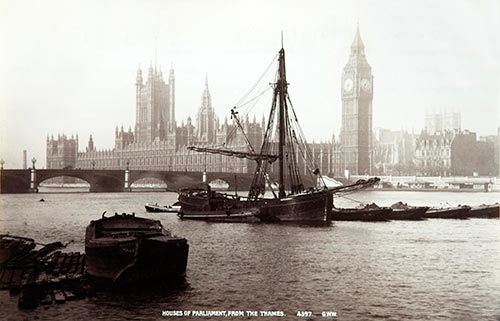
Houses of Parliament with boats, 1899. Catalogue ref COPY 1/443/396 (i)
By the end of May, the new Data Protection Bill is expected to pass into law, replacing the Data Protection Act 1998. This follows new privacy legislation at European level – a process beginning back at the start of this decade – resulting in the General Data Protection Regulation (GDPR).
Both archives and privacy are of great societal importance, and the new data protection laws have protections for archiving to make these things compatible. As government lead for the archives sector, The National Archives is developing guidance to help archivists, and others who work in archives, understand the implications of GDPR. We know people have questions, and so we want to hear from you so that we can make sure our guidance addresses the most pressing and relevant queries for the sector.
We also plan to develop tools and guidance to support the sector with the new law. At this stage, we can be reasonably confident that changes will mostly affect contemporary information that an archive service would hold, for example for marketing or registration rather than the historical records that continue to be protected as they have been under the current Data Protection Act. Much of how archives have managed personal data and requests for access to it will remain the same.
In November, the Secretary of State for Digital, Culture, Media and Sport, Rt Hon Matt Hancock MP, set out his department’s definition of ‘archiving in the public interest’. The full answer to the question can be found here. On the scope and reach of the term, which is new to data protection law, he said:
It is likely to apply to a wide variety of community, private, public sector, charitable/trust and voluntary sector archives. It could also include archives that may be closed to researchers at the present time, but which would become accessible at some future date, and archives which are held in analogue or digital format. The definition would not, however, cover organisations which gather and use data, information and records purely for their own commercial gain or that have no enduring public value.
We want to be sure archives are supported as the new law takes effect, and we are talking to a broad community of stakeholders, including the Archives and Records Association of UK and Ireland (ARA), and the national record offices of Scotland, Wales and Northern Ireland as we develop these resources.
Please email us your questions at asd@nationalarchives.gov.uk, and follow us on Twitter @UKNatArcSector for updates.
Comments are temporarily closed